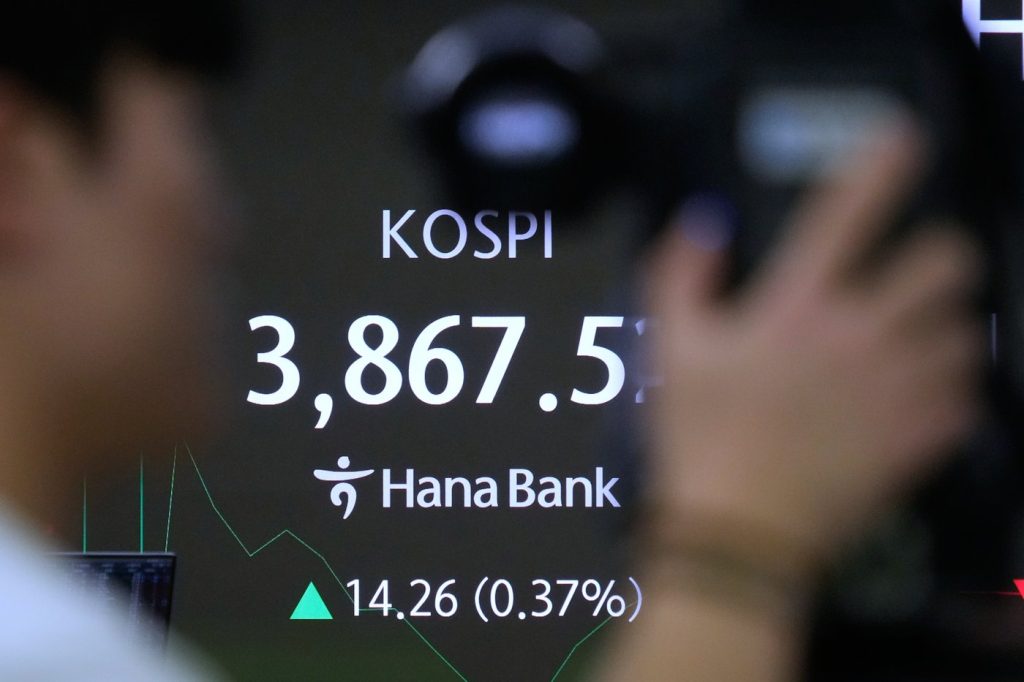BANGKOK (AP) — Asian shares experienced a mostly positive session on Monday, with U.S. futures also advancing after a turbulent week on Wall Street. Notably, markets in Japan were closed due to a holiday.
The Hang Seng index in Hong Kong saw a significant rise, climbing 1.3% to 25,550.89, largely propelled by a 4.7% increase in shares of e-commerce giant Alibaba. This surge followed strong demand reports for Alibaba's new Qwen AI app. The company is set to announce its earnings on Tuesday, which is anticipated to attract further investor interest.
Meanwhile, the Shanghai Composite index was one of the few regional markets to decline, losing 0.3% to 3,821.68. Conversely, Australia’s S&P/ASX 200 index rose by 1.1% to 8,507.60. South Korea's Kospi index also showed gains as technology shares stabilized after experiencing volatility related to the sustainability of the artificial intelligence trend.
Taiwan’s Taiex index increased by 0.4%, and India's Sensex inched up 0.1%. In the United States, futures for the S&P 500 climbed 0.6%, with the Dow Jones Industrial Average also up by 0.3%.
This week, U.S. markets will observe the Thanksgiving holiday on Thursday, followed by the retail rush of Black Friday and Cyber Monday. Traders are anticipated to closely monitor consumer spending, which plays a crucial role in driving economic growth, accounting for about two-thirds of the U.S. GDP. According to Stephen Innes from SPI Asset Management, the scarcity of economic data during the recent six-week government shutdown has made any signals of holiday activity particularly significant.
Last Friday, the S&P 500 closed up by 1% at 6,602.99, while the Dow Jones climbed 1.1% to 46,245.41. The Nasdaq composite followed suit, rising by 0.9% to 22,273.08. A remarkable 90% of stocks in the S&P 500 advanced, marking a robust finish to a week characterized by sharp fluctuations in the markets.
The S&P 500 now stands approximately 4.2% below its all-time high, and after significant movements in the markets, investors are now questioning whether the valuations of high-flying stocks such as Nvidia and Bitcoin have become overly inflated. Additionally, many are wondering if the Federal Reserve is finished cutting interest rates, which tends to stimulate both the economy and asset prices.
Traders found some solace in remarks made by John Williams, President of the Federal Reserve Bank of New York, at a conference in Chile, where he indicated there may be "room for a further adjustment" to interest rates. Despite this optimistic outlook, other Fed officials have cautioned against a rate cut in December, citing persistent inflation concerns.
In the bond market, Treasury yields saw a decline on Friday amidst hopes for potential cuts from the Fed. Speculation now suggests there is a nearly 72% probability of a December rate cut, a marked increase from 39% just a day prior, contributing to a drop in the yield of the 10-year Treasury to 4.06% from 4.10% the previous day.
In the commodities market, U.S. benchmark crude oil dipped by 6 cents to $58.00 a barrel, while Brent crude, the international benchmark, decreased by 4 cents to $61.90 a barrel. The U.S. dollar strengthened, rising to 156.65 Japanese yen from 156.47 yen, and the euro edged up to $1.1519 from $1.1516.
Bitcoin saw a notable increase of 3.2%, trading at $87,350 after having recently dipped below $81,000 before rebounding toward $85,000. This current value reflects a significant decrease from nearly $125,000 last month, reverting it back to levels seen in April, a time marked by market uncertainties stemming from heightened tariffs imposed by President Donald Trump.











